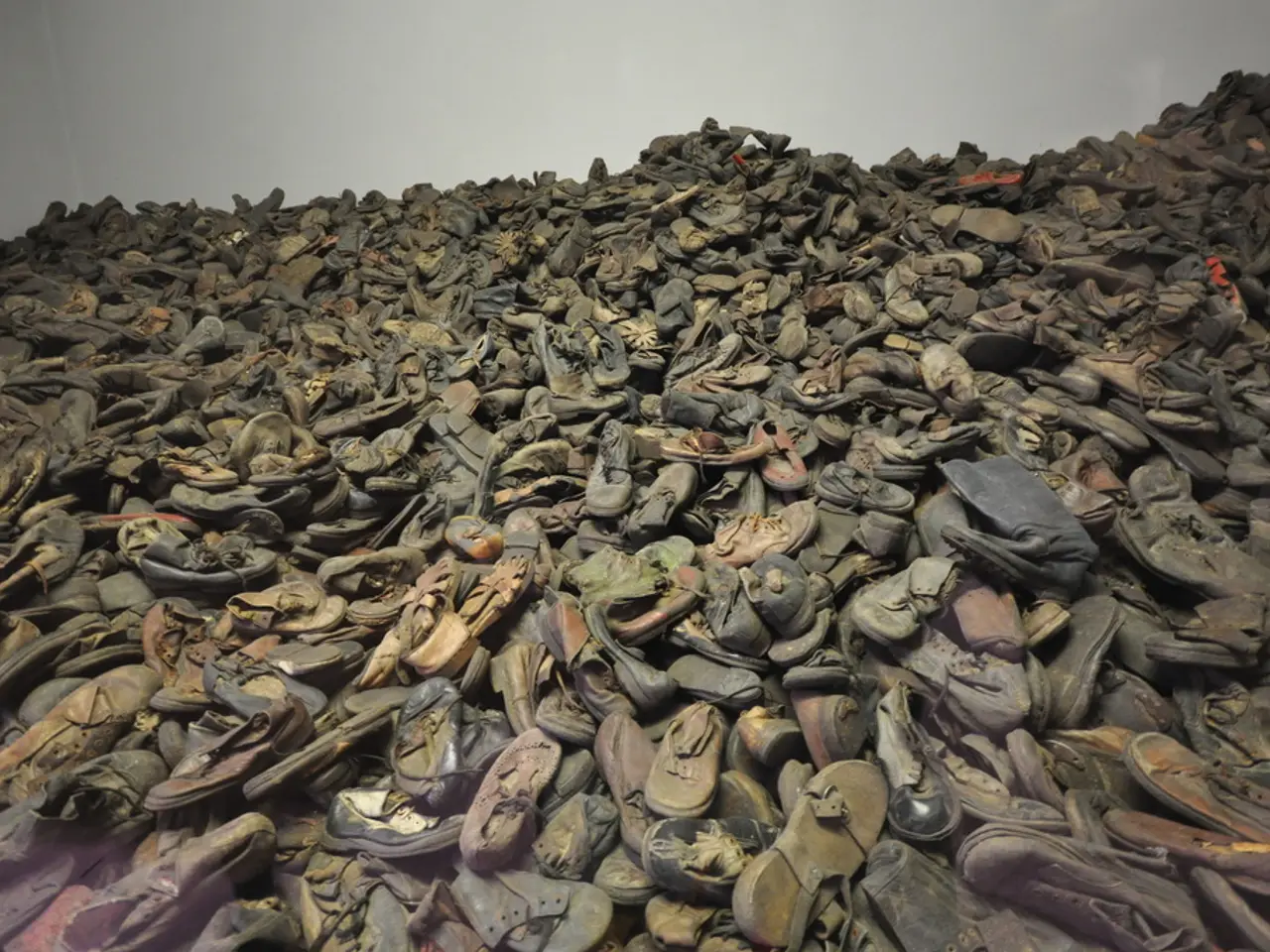Trump Files Lawsuit to Dismiss PBS CEO, Big Bird's Supervisor
The Corporation for Public Broadcasting (CPB) finds itself at the centre of a significant legal conflict, as the Department of Justice (DOJ) has filed a lawsuit to remove three of its board members - Laura Ross, Thomas Rothman, and Diane Kaplan - who were previously fired by President Trump in April 2025 [1][2][3]. The CPB and the board members maintain that the President does not have the authority to dismiss them, citing the corporation's statutory independence and recently amended bylaws [1][2].
The DOJ, on the other hand, argues that the President's constitutional authority to remove federal officeholders, including CPB board members, is supported by recent Supreme Court orders [2]. The lawsuit, filed in the U.S. District Court in Washington, D.C., accuses the board members of usurping their offices, continuing to operate despite their removal, and seeking legal relief to protect their positions [1][3].
The CPB asserts that it is not a federal executive agency subject to presidential control, and that its board members may only be removed under specific internal procedures, not by unilateral presidential action [1]. In response to the administration's attempts to assert control, the CPB amended its bylaws in May 2025 to stipulate that board members can only be removed “by any person or authority, including the President of the United States,” with the concurrence of two-thirds of the board [2]. The CPB and its board members argue that the President only has the authority to appoint—not remove—board members, as there is no statutory provision granting the President that power [2].
Parallel to the legal battle, President Trump signed an executive order ending federal funding for NPR and PBS, citing concerns over media bias and the appropriateness of taxpayer subsidies for public broadcasting [1][3]. The Senate is also debating a rescissions package that would permanently defund the CPB and claw back over $1.1 billion in already appropriated funds for fiscal years 2026 and 2027 [1][2].
In June 2025, a district court judge declined to grant a preliminary injunction to the board members, citing a lack of immediate need for judicial intervention, but did note the board’s authority to amend its own removal procedures [2]. The CPB continues to operate, with the disputed board members participating in meetings and votes, while the DOJ lawsuit seeks a court order to forcibly remove them [1][3].
This case represents a significant test of the limits of presidential authority over quasi-independent federal entities. The outcome will hinge on whether courts view CPB board members as removable at will by the President (as with traditional agency heads) or as protected by statute and corporate governance rules. The resolution will likely require judicial clarification on the balance between presidential authority and the independence of federally chartered corporations like the CPB [2].
| Issue | CPB/Board Members’ Argument | DOJ/Administration’s Argument | |------------------------------|---------------------------------------------|-----------------------------------------| | Removal Authority | Only by board supermajority, per bylaws | President has constitutional authority | | Statutory Independence | CPB is not an executive agency | All federal officeholders serve at president’s pleasure | | Judicial Precedent | No statutory provision for presidential removal | Recent Supreme Court rulings support president’s removal power | | Current Status | Board members continue to serve | Lawsuit seeks court-ordered removal |
The lawsuit marks a critical juncture in the ongoing struggle over the CPB’s governance and funding. The administration is pushing for greater presidential control, while the CPB and its board are resisting, citing statutory protections and internal governance rules. The resolution will require careful consideration of the balance between presidential authority and the independence of federally chartered corporations like the CPB [1][2][3].
- The future of the CPB's governance is at stake as the DOJ has filed a lawsuit to remove three board members, a move that the CPB and the board members argue is unconstitutional due to the corporation's statutory independence and recently amended bylaws.
- Technology news outlets such as Gizmodo and TechCrunch are reporting on the legal battle, as the case represents a significant test of the limits of presidential authority over quasi-independent federal entities, with the outcome hinging on whether courts view CPB board members as removable at will by the President or protected by statute and corporate governance rules.
- The resolution of the lawsuit will have far-reaching implications, not only for the CPB and its board members, but also for policy-and-legislation, politics, general-news, crime-and-justice, and war-and-conflicts, as the outcome could set a precedent for the balance between presidential authority and the independence of federally chartered corporations.
- Meanwhile, the President's attempts to assert control extend beyond the legal battle, with President Trump signing an executive order ending federal funding for NPR and PBS and the Senate debating a rescissions package that would defund the CPB, further escalating the conflict and raising concerns about media bias and taxpayer subsidies for public broadcasting.








